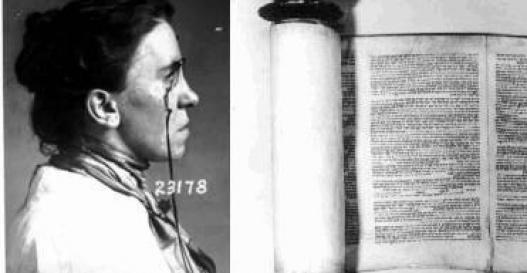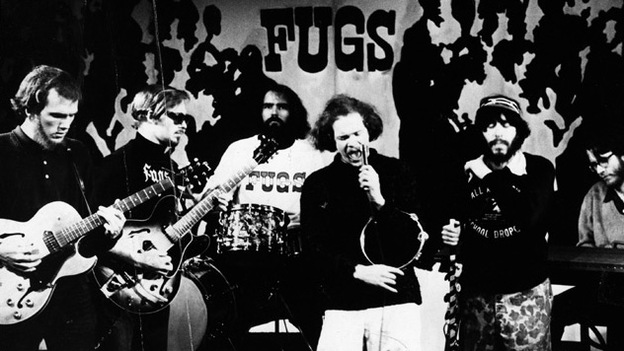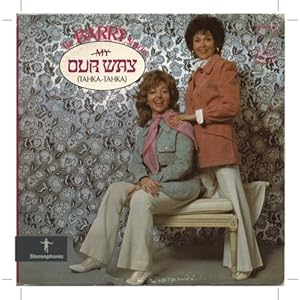
I just got back from Cafe 1923 in Hamtramck, MI. Hamtramk is an ethnically diverse, seriously hip, blue-collar industrial town just north of Detroit. Cafe 1923 is about my favorite kind of place in the world. It's a small indy coffee shop, with a barrista who knows her trade and a book and couch filled back room. Just right for hearing one of the best new Jewish bands in the world doing an intimate 'parlor' concert.
So what do I mean by "one of the best new Jewish bands in the world?" I'll get to that in a moment. First, let me set the stage. Alica Jo Rabins, the band leader and songwriter, was up first singing over intricate and lovely looping violin and gently strummed guitar. Rabins has a gorgeous, heartbreaking voice and the rare ability to give her songs individual narrative voices. The girl singing Snow is not the girl singing Mountain, even if both are Alicia. Rabins was joined by her touring bandmates, Aaron Hartman on upright base, Elaina Morgan on electric guitar, backup vocals and xylophone, and Jonathan Vincent on accordion. (I think this was the line up. Someone correct me if I goofed.) Together, they created a lovely pop sound that evoked American folk and British pop.
Again..so why the "one of the best new Jewish bands in the world?" Because in 10 years the songs I heard tonight will be part of the American Jewish songbook. Sitting on the couch a few feet back, listening to Rabins and Morgan sing the stories of girls in trouble in the Torah, I suddenly knew what
Debbie Friedman's first audiences must have felt. Strip away the talented musicians. Strip away the lovely harmonies. Strip away even Rabins voice. What's left are lyrics that give immediate, visceral life to people who's pain, joy, and faith was written down between three to four thousand years ago. Miriam. Hannah. Judith. What's left is a simple, memorable, and singable melody that captures those emotions. I can imagine arrangements of these songs sung to a solo guitar at a campfire, sung a cappela by friends holding hands, sung on stage or even on a bimah. These aren't Debbie Friedman's liturgical anthems, they're way to intimate. But they have that resonance.
Lucky for me, anyone who sees them live, or can grab their album, we don't have to strip away anything. We get the songs wonderfully performed. Here's a video from a recent concert of one of my favorite of Rabins songs, "Snow." Sorry, the performance I went to tonight was even better than this one. Hey, don't complain. You were invited.
"Snow / Scorpions and Spiders" by Girls in Trouble
The title of this post, by the way, comes from the Girls in Trouble song "Mountain." I couldn't find a video of Mountain that came close to the performance I saw tonight, but
this one from their album release party is ok.
For more more info on Girls in Trouble check their
Myspace page and
JDub Records page. Also check out Rabins other band, the klezmer punk band
Golem! and Aaron Hartman's other band
Old Time Relijun. There are still a few East Coast dates left on their tour and they'll be heading south in a few months. See them live. That way you can say you were there when it happened.
Update: Check out
a second review of last nights show by Detroit writer Des Cooper.





















